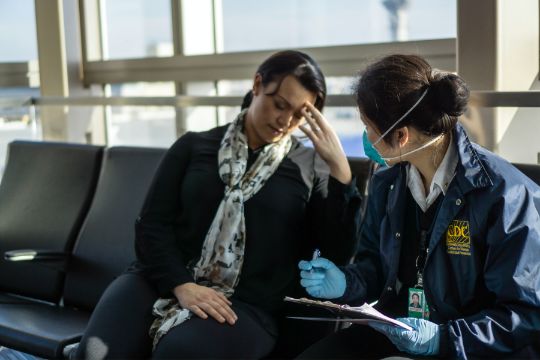
An Act to add Section 120137 to the Health and Safety Code, relating to public health.
THE PEOPLE OF THE STATE OF CALIFORNIA DO ENACT AS FOLLOWS:
SEC.1. Section 120137 is added to the Health and Safety Code to read:
120137. (a) Refusal of treatment. Notwithstanding laws, rules, or orders made or promulgated in response to an emergency, including but not limited to a national security emergency, state-wide emergency, local or other health emergency, or any peacetime emergency, and notwithstanding existing laws and rules addressing outbreaks or potential outbreaks or epidemics of a contagious, infectious, or communicable disease, individuals retain the right to be free and independent and maintain their inalienable and fundamental rights including but not limited to the right to refuse the following activities whether for direct response or prevention: medical treatments or procedures; testing; physical or mental examination; vaccination; experimental procedures and protocols; collection of specimens; participation in tracking or tracing programs; the wearing of masks; the maintaining of measured distance from other humans and animals that is not otherwise unlawful; and the involuntary sharing of personal data or medical information. An individual who has been directed or ordered by a government or its designees, or a public or private business or entity, including but not limited to a commissioner or director of health, a local health officer, a sheriff or peace officer, or any designee of such commissioner, director or officer, to submit to a directive or order of that nature, may choose to decline to comply, respond to, or participate with said directive or order. For purposes of Section 120137 (a) (b) and (c), “individual” and “person” includes adults and minor children.
(b) Coercion. The government or its designees, or other employers, businesses, non-profits, institutions, churches, travel carriers, or other public or private entities, may not infringe upon, put conditions on, restrict, or take away a person’s ability to fully participate in necessary and important services and lifestyle choices and preferences including but not limited to education, daycare, employment, travel, religion, hobbies, entertainment, sports, and lifestyle preferences, based on a person choosing to decline countermeasures as described in part (a).
(c) Persons Needing Care. A person who is infected with or reasonably believed to be infected with or exposed to a toxic agent that can be transferred to another individual or to a communicable disease, and the agent or communicable disease is the basis on which the emergency has been declared, or the basis of a non-emergency order, law, or rule, and who refuses to submit to a prevention, treatment, or other directive or order, may participate in isolation or quarantine according to parameters set forth in sections xxxxxxx [insert citation to California’s quarantine law]. Notwithstanding isolation and quarantine laws, all said isolation or quarantine must be of the least restrictive means possible, include reasonable notice and due process, be protective of the right of the individual to remain in their home, live with family members, friends or significant others at all times, and homes are not required to be altered or renovated such as adding additional bathrooms. The quarantining of a non-infected person may not be imposed upon an individual multiple times based on third party location data. Treatment, testing, tracking, or prevention orders must not be imposed as a requirement for the ending of isolation or quarantine of a person. A person in isolation or quarantine has the right to utilize the health care treatments of their choice and to have a consenting person of their choice with them and attending their needs at all times. Quarantine may not take away or alter the legal or medical custody of a person who is under a parent or legal guardian. A minor child may not be forcibly removed from their parent or home.
(d) Information given. Before a health care provider or an individual who has been directed or ordered by a government or its designees, or a public or private business or entity, including but not limited to a commissioner or director of health, a local health officer, a sheriff or peace officer, or any designee of such commissioner, director or officer, performs or requests participation in a directive or order, including but not limited to the activities listed in Section 120137 (a) , he/she shall notify the individual in writing and by reading the above Section 120137 (a), (b) and (c) to the person, or the person’s parent or legal guardian, of the individual’s rights as described herein. The provider, commissioner, director, officer or any designee shall also obtain a signature of acknowledgement of receipt of notification of a person who declines to participate or who exercises his/her right to refuse.